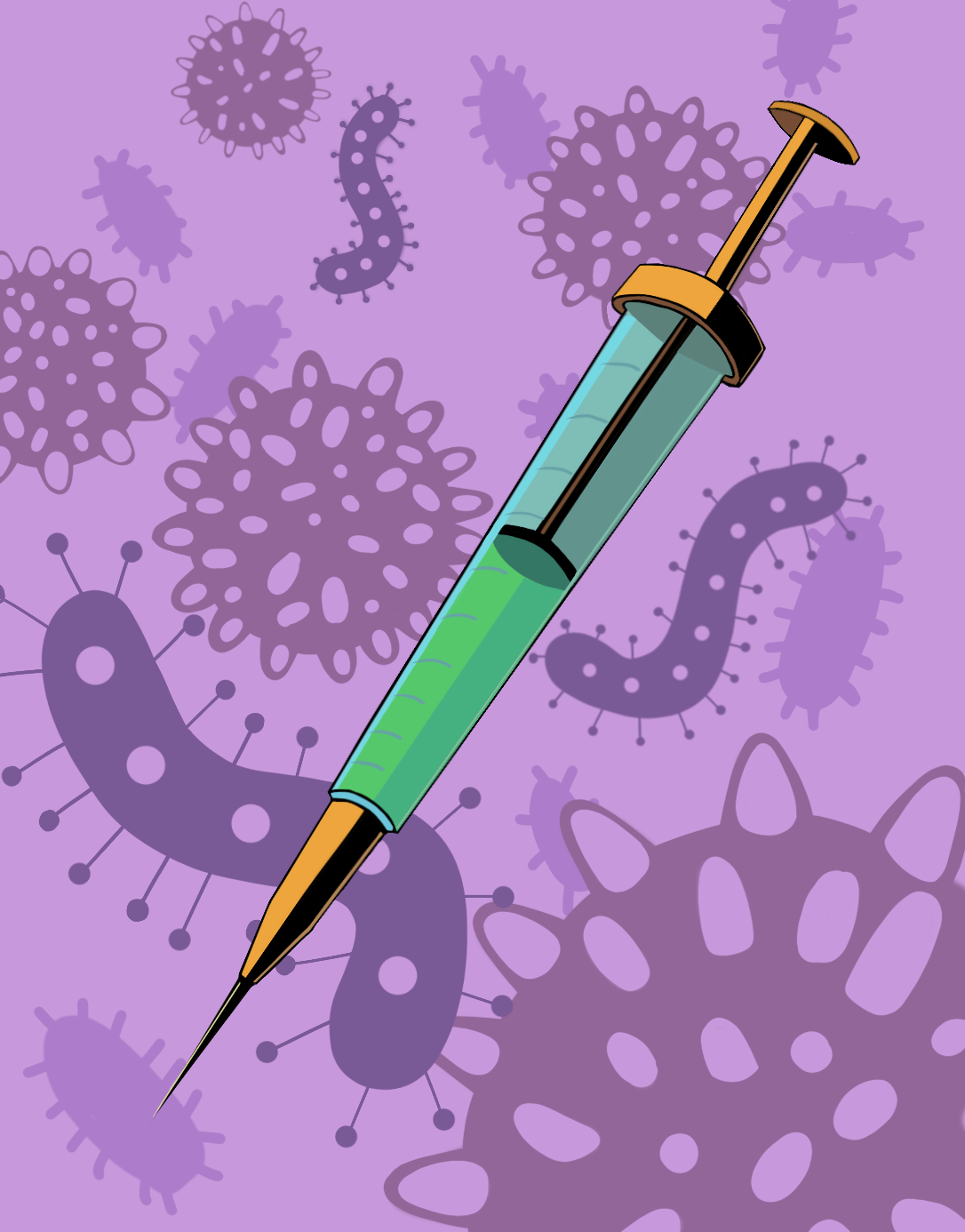
Vaccinations: get it together, people
By Aymen Sherwani, November 6 2018 —
We’ve officially entered flu season. As in years past, the University of Calgary provided influenza vaccination services in MacHall. Did you get one?
Getting your annual flu shot calls attention to why getting vaccinated is so important, especially now, with the rise of anti-vaccination movements leading to outbreaks of diseases once thought to be eradicated.
More or less, the process of vaccination entails introducing a harmless portion of a viral disease into our bodies, allowing our immune system to develop a resistance in preparation for when they come across the full version of the pathogen.
After the 1955 introduction of a vaccine for polio, an infectious virus that causes paralysis if the brain and spinal cord happen to be infected, cases in Canada were under control in the 1970s and the country was declared “polio-free” in 1994. Polio was eventually thought to be eradicated from the Western Hemisphere until this year when a Venezuelan child was diagnosed with the disease.
According to CNN, an evaluation of 104 health facilities in Venezuela points to a failing health care system, poor water sanitation and food shortages as results of recent political and economic instability in the region. All of these factors, alongside the low vaccination rates present in the densely populated country, explained why there would be a possible resurgence of polio.
Beyond countries with less-developed health systems, a major hurdle to disease prevention is the anti-vaccination movement, backed by misinformed individuals. People rejecting peer-reviewed science and relying on fraudulent studies have fed into a mass hysteria that is damaging to the whole population.
Try telling people in the anti-vax movement to take a chill pill while explaining how they’re becoming incubi for a literal plague and they’ll just rant about how the pharmaceutical industry profits off those, too.
It doesn’t help that celebrities like tattoo mogul Kat Von D fuel the anti-vaccination movement. These celebrities use their platform to express how they will not be vaccinating their children, arguing that it’s not ‘natural’ and that parents have a right to raise their children the way they want to.
Both these arguments have issues. If you have a problem with vaccines not being natural, remind yourself that our unnatural medical practices exist to prevent us from literally dropping dead as we used to in the 14th century. There’s also a huge problem behind the thinking that vaccines are a personal choice. Yes, parents can make that choice — but many who decide not to vaccinate their children are so preoccupied with what they can or can’t do that they haven’t stopped to think about what they should do. Refusing to vaccinate yourself or your children puts the lives of children who are too young to be vaccinated, people with autoimmune diseases and other anti-vaxxers at risk. The anti-vax movement has even contributed to the resurgence of measles, a disease once believed to be almost eradicated in the developed world.
There’s an even more radical side to the anti-vax movement — the idea that vaccines cause autism. Hailed by conspiracy theorists, this argument is demonstrably false. These absurd claims are purported in fraudulent studies, such as that by Andrew Wakefield, who later admitted to fabricating data of children’s blood samples for autism. In fact, countless reliable studies, such as one done by the Japanese Society for Vaccinology, concluded that there is no relationship between vaccinations and autism at all.
If you’re still unconvinced that vaccines help us live sustainable and healthy lives, then you had the privilege of being born in a time after when people were forced to have iron lungs or have parts of their bodies amputated due to a lack of treatment. That isn’t a time we should return to. Get your vaccinations and immunizations.
